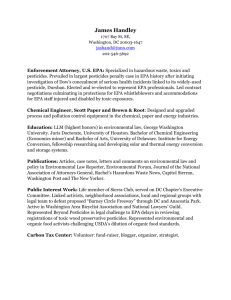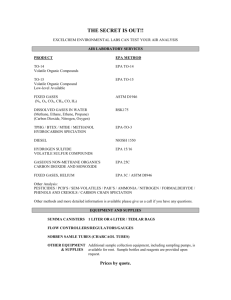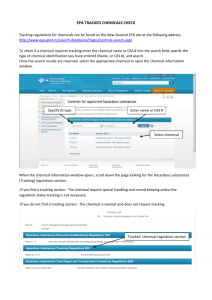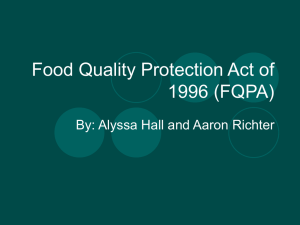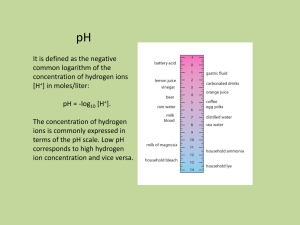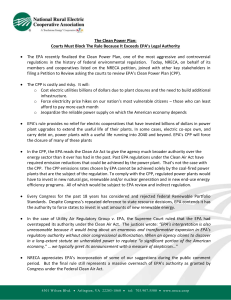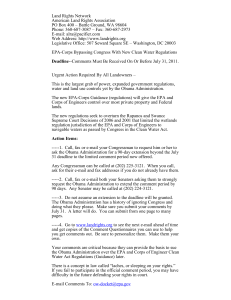The Environmental Protection Agency, whose mission is to protect
advertisement
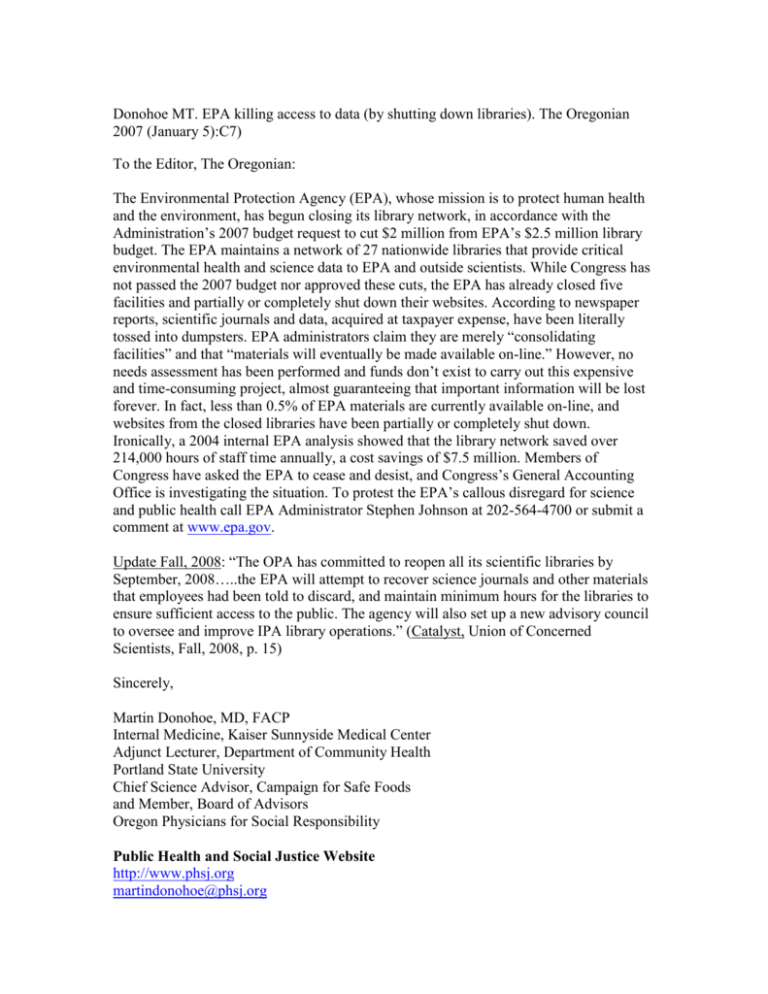
Donohoe MT. EPA killing access to data (by shutting down libraries). The Oregonian 2007 (January 5):C7) To the Editor, The Oregonian: The Environmental Protection Agency (EPA), whose mission is to protect human health and the environment, has begun closing its library network, in accordance with the Administration’s 2007 budget request to cut $2 million from EPA’s $2.5 million library budget. The EPA maintains a network of 27 nationwide libraries that provide critical environmental health and science data to EPA and outside scientists. While Congress has not passed the 2007 budget nor approved these cuts, the EPA has already closed five facilities and partially or completely shut down their websites. According to newspaper reports, scientific journals and data, acquired at taxpayer expense, have been literally tossed into dumpsters. EPA administrators claim they are merely “consolidating facilities” and that “materials will eventually be made available on-line.” However, no needs assessment has been performed and funds don’t exist to carry out this expensive and time-consuming project, almost guaranteeing that important information will be lost forever. In fact, less than 0.5% of EPA materials are currently available on-line, and websites from the closed libraries have been partially or completely shut down. Ironically, a 2004 internal EPA analysis showed that the library network saved over 214,000 hours of staff time annually, a cost savings of $7.5 million. Members of Congress have asked the EPA to cease and desist, and Congress’s General Accounting Office is investigating the situation. To protest the EPA’s callous disregard for science and public health call EPA Administrator Stephen Johnson at 202-564-4700 or submit a comment at www.epa.gov. Update Fall, 2008: “The OPA has committed to reopen all its scientific libraries by September, 2008…..the EPA will attempt to recover science journals and other materials that employees had been told to discard, and maintain minimum hours for the libraries to ensure sufficient access to the public. The agency will also set up a new advisory council to oversee and improve IPA library operations.” (Catalyst, Union of Concerned Scientists, Fall, 2008, p. 15) Sincerely, Martin Donohoe, MD, FACP Internal Medicine, Kaiser Sunnyside Medical Center Adjunct Lecturer, Department of Community Health Portland State University Chief Science Advisor, Campaign for Safe Foods and Member, Board of Advisors Oregon Physicians for Social Responsibility Public Health and Social Justice Website http://www.phsj.org martindonohoe@phsj.org

